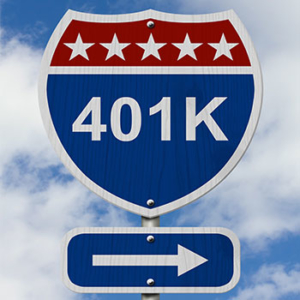 The average American has 12 jobs in their lifetime, and many of those jobs will offer retirement benefits. What do you do with those benefits when you move on to your next job? You have several options.
The average American has 12 jobs in their lifetime, and many of those jobs will offer retirement benefits. What do you do with those benefits when you move on to your next job? You have several options.
Option 1: Do Nothing
If your 401k balance exceeds $5,000, you might be permitted to leave it in your former employer’s plan.
Pros:
- It’s convenient, and it can be a good move if you are happy with your plan portfolio.
- It can be cheaper in terms of fees.
- Continue any tax-deferred growth
- Avoid early withdrawal penalties
- Move your savings to another retirement plan later
- Protection from creditors
- May be able to delay required minimum distributions past age 70 ½
Cons:
- The plan is controlled by your former employer, not you, thus limiting your investment choices to the plan’s options.
- If the balance is below a certain level, sometimes the administrator won’t let you stay in the plan.
- The plan’s fees sometimes increase for former employees, so that’s something to ask your benefits representative.
- You could forget about this account over time. I know this sounds crazy, but it happens. I inherited an account from a retiring financial advisor in 2020 and when I reached out to the client to introduce myself, she didn’t remember that she had an account with us.
- You can’t take a loan against your old 401(k) plan.
 Option 2: Rollover to an IRA
Option 2: Rollover to an IRA
Pros:
- Continue any tax-deferred growth with the flexibility to select investment options that fit your specific needs.
- Your IRA could be directly managed. Direct management also includes being able to work with a financial advisor to create a financial plan at no additional cost. Your advisor also will recommend changes in investment strategies as you age and your needs/goals change.
- Opening an IRA with a trusted advisor helps you establish a relationship with a professional who has your best interest in mind, and they won’t let you forget about your account, as mentioned above.
- You may have the option to convert to a tax-free Roth IRA, if appropriate.
- Remember that fact about changing jobs 12 times? Establishing an IRA gives you one central location to rollover retirement funds any time you move on to a new employer. This beats having retirement dollars strewn all over that may no longer be invested appropriately according to your age and risk tolerance.
- Avoid early withdrawal penalties
Cons:
- The fee might be higher than with your former employer’s 401k plan, but it may be worth it if you’re getting access to beneficial financial advice and planning tools.
- There may be custodial and other maintenance fees
- You can’t borrow against your assets
Option 3: Rollover to Your New Employer’s Plan
Pro:
- You’re keeping track of your retirement funds by having them all in one location.
- Continue any tax-deferred growth
- Avoid early withdrawal penalties
- May be able to borrow from the plan
- Protection from creditors
- May have lower fees
Con:
- Your investment options are limited to what is offered by your new employer, so you should determine if those are the best options to meet your needs.
- You may have limits on how you move your money between the investment choices in the plan.
Option 4: Cash Out Your 401k
 I hate, hate, hate this option. However, the pandemic taught us that life can be turned upside down without much warning and if you have no money to live off of, this can be a lifeline.
I hate, hate, hate this option. However, the pandemic taught us that life can be turned upside down without much warning and if you have no money to live off of, this can be a lifeline.
Pro:
- I barely consider this “a good thing,”because typically if you are under age 59½, a 10% early withdrawal penalty may apply and your distribution may also be subject to state and federal taxes. In addition, you may also owe a mandatory 20% federal withholding tax. However, the CARES Act allowed early withdrawals from retirement accounts without charging a 10% penalty, according to Nerdwallet. Some CARES Act provisions have expiration dates, so be sure to research thoroughly before accessing your retirement dollars.
Con:
- You lose your retirement nest egg.
Option 5: Learn More
If you’ve changed jobs and have questions about next steps with your retirement savings, I’m happy to answer questions and offer some guidance. If a friend or loved one has changed jobs recently and could use some help, please share this article with them.
March 2021
Content in this material is for general information only and not intended to provide specific advice or recommendations for any individual. No strategy assures success or protects against loss. Investing involves risk including loss of principal.
Traditional IRA account owners have considerations to make before performing a Roth IRA conversion. These primarily include income tax consequences on the converted amount in the year of conversion, withdrawal limitations from a Roth IRA, and income limitations for future contributions to a Roth IRA. In addition, if you are required to take a required minimum distribution (RMD) in the year you convert, you must do so before converting to a Roth IRA.




